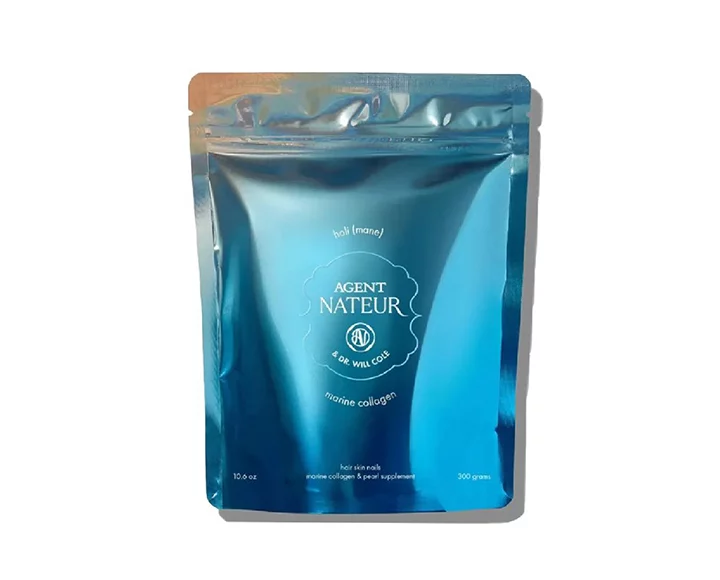Breaking the cycle of bad sleep habits can feel like one of those true crime shows. You know the messy end result, but how did we get there? And who is really to blame? According to our friends at Food Matters, the state of your gut might be directly responsible for not getting enough high-quality sleep — which tends to affect everything else. We’ll let the pros explain the connection between gut health and sleep…
Almost 60 million Americans spend their nights in fitful slumber; tossing and turning, wrestling with the need to get to sleep and yet torturously being unable to do so. We all know those nights when no amount of counting sheep will work and each hour stretches by with increasing frustration. Yet there are many options to help you sleep better, ranging from meditation to aromatherapy. But what if the solution was actually in your gut, of all places?
Believe it or not, what’s happening in your belly right now will play a factor in how well you sleep tonight. Why? Because there is a direct connection between gut health and sleep; the gut influences our brain, and the brain regulates our sleep.
Previously, it was thought that the gut simply oversaw the digestion of our food. As it turns out, our gut does a whole lot more than digestion. Our gut actually has a profound impact on many neurological functions. In fact, your gut contains so much neural tissue that it has been called ‘the second brain’. Furthermore, our gut plays host to over 30 types of neurotransmitters like the ones found in your brain. The gut also contains 100 million neurons, which is higher than the amount found in our spinal cord! And if you need more proof of your gut’s brain-like properties, at least 95% of serotonin – an important neurotransmitter for cognitive function – is produced in your gut! Whoa, right?
How Does Serotonin Help With Sleep?
Serotonin is a neurotransmitter that affects many functions within your body. You might have casually heard it referred to as the ‘happiness hormone’. Because of its powerful effect on mood and cognition, many antidepressant drugs target serotonin. However, serotonin doesn’t just dial up our joy, it also plays a major role in regulating our body clock and related sleep cycles. Our bodies don’t automatically make the perfect amount of serotonin every day. How much we produce is affected by many factors, including natural light, food and exercise. How much serotonin we make has a real impact on our sleep. It is the precursor substance required to make melatonin, which has been referred to as the ‘get-good-sleep’ hormone.
Our guts hold over 400 times more melatonin than the pineal gland! Researchers have also demonstrated that gut production of melatonin remains stable, even after the pineal gland is removed. This highlights what a foundational, autonomous role the gut plays in regulating our sleep. Interestingly, low levels of melatonin have also been linked with leaky gut!
How Does Sleep Work?Sleep is largely overseen by our circadian rhythm (CR), which is ultimately controlled by certain nerves within the hypothalamus of your brain. This is a constant, round-the-clock timing system that governs a whole bunch of physiological processes.
Your CR is bit like a master control room, and it calls the shots on many aspects of digestion, appetite, blood pressure, immunity, body temperature, mental alertness and the release of various hormones. Incidentally, it also helps to regulate your sleep cycles. Unfortunately, your hypothalamus and CR is greatly affected by outside factors! This means that what happens in our outside and inside environment can influence the CR, and subsequently, our sleep.
Light is a great example of an external factor that influences our hypothalamus and CR. Light is filtered through our eyes and signals to the hypothalamus that it’s ‘wake-up’ time. The hypothalamus then passes along these ‘wake-up’ signals to jolt corresponding organs, glands and physiological systems into action. It also tells our body to make more of our ‘daytime/awake’ hormones and other neurotransmitters that influence our biological clock. If humans were still living in the wild, the stimulus of light from the natural environment would be a friendly asset to our hypothalamus.
However, as you know, we no longer live outdoors. In fact, the average American spends as little as 7% of their life outside! This means that our hypothalamus no longer marches to the beat of a natural light rhythm. Instead, we are exposed to artificial lighting, computer screens, televisions and phones that all send light signals to our brain long after the sun’s gone down.
It’s a double whammy: we get too much light at night and not enough throughout the day. This interferes with our hypothalamus, CR and serotonin production and makes it easier for our natural sleep cycles to be thrown out of whack.
How Does Your Gut Microbiome Affect Sleep?So far, we know that light, food and exercise affect serotonin production in our gut. This reduces our ability to make melatonin, which we all need to catch good-quality zzz’s. Still with me? I hope so, because this story is about to take an even stranger twist. There is a big, thick nerve that connects our brain and gut called the vagus nerve. Shockingly, about 90% of the neural fibers in this nerve transmits information from your gut to your brain…Not the other way around! This is compelling proof that our gut has a direct say in your brain function.
Even stranger, it turns out that the TRILLIONS of bacteria that form your gut microbiome also directly communicate with your nervous system – to the extent that certain microflora can even influence serotonin production. So your gut bacteria can reduce serotonin levels, which interferes with sleep. The interesting thing is that sleep deprivation also appears to negatively impact your gut bacteria!
One study found that jet lag from a 10-hour flight was enough to cause a temporary dysbiosis in gut bacteria. While this corrected once participants were sleeping normally again, it does demonstrate that even moderate amounts of poor quality sleep are enough to negatively impact our microbiome.
Can you imagine what’s happening over years of not sleeping properly? And, of course, this leads to a self-perpetuating cycle of bad sleep and poor gut health, as they both impact on the quality of the other. Furthermore, what foods do we turn to when we’re tired and stressed? Sugar, caffeine and convenience foods; all of which also don’t do our good gut bacteria any favors.
Here are some other ways in which scientists think the gut microbiome can affect our sleep:
Stress + Mood: There is evidence to show that gut microbiota can affect our emotions and mood. Any resultant stress, depression and anxiety can then make falling asleep harder. Lack of sleep impacts our good gut bacteria…and so the spiral continues!
Hormones: The bacteria in our gut are involved in producing key hormones and neurotransmitters, such as serotonin, GABA and dopamine. These all play a role in our mood and ability to sleep.
Pain: Did you know that unhealthy gut bacteria can increase your sensitivity to pain? This affects your sleep for obvious reasons; who can nod off peacefully when in pain? Stress itself will also exacerbate the perception of pain.
The Circadian Rhythms Of Your Gut Microbiome
It may sound stranger than fiction, but new findings suggest that the gut microbiome follows its very own CR. The 24-hour cycles of our gut flora seem to parallel our body’s own CR. For instance, there is a ‘changing of the guard’ in our gut bacteria when darkness falls. This suggests that our own CR and microbiota rhythms may be able to interact, thereby disrupting our sleep.
Foods That Can Help Your Gut And Promote Sleep
What we eat plays a big part in how sleep unfolds once our heads hit the pillow at night. Food isn’t just a tasty commodity that we put in our mouths for culinary pleasure. Food provides chemical information that tells our body what to do and signals various biological pathways to begin. This includes signalling our body to sleep well, or pass the nocturnal hours counting sheep.
Learn to fall asleep deeply (and practically anywhere) with these tips from Food Matters.
The Chalkboard Mag and its materials are not intended to treat, diagnose, cure or prevent any disease. All material on The Chalkboard Mag is provided for educational purposes only. Always seek the advice of your physician or another qualified healthcare provider for any questions you have regarding a medical condition, and before undertaking any diet, exercise or other health related program.













